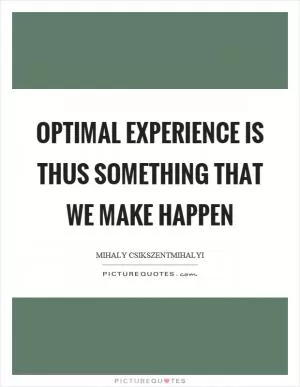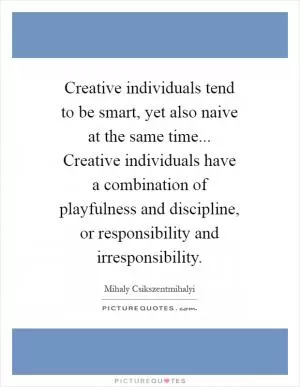Without the capacity to provide it's own information, the mind drifts into randomness

Without the capacity to provide it's own information, the mind drifts into randomness
Mihaly Csikszentmihalyi, a renowned psychologist known for his work on the concept of flow, would likely argue that without the capacity to provide its own information, the mind indeed drifts into randomness. Csikszentmihalyi's theory of flow suggests that individuals experience optimal psychological states when they are fully engaged in an activity that challenges their skills and provides immediate feedback. In other words, when the mind is actively processing information and responding to stimuli, it is more likely to enter a state of flow and experience a sense of purpose and fulfillment.When the mind lacks the capacity to provide its own information, it may struggle to find meaningful engagement with the world around it. Without the ability to actively seek out new experiences, process information, and make decisions, the mind may become passive and susceptible to external influences. This can lead to a sense of aimlessness and disconnection from one's own thoughts and emotions.
Csikszentmihalyi's research suggests that individuals are happiest when they are fully immersed in an activity that challenges them and allows them to exercise their skills. This state of flow requires the mind to be actively engaged in processing information, making decisions, and responding to feedback. Without this capacity, the mind may struggle to find purpose and direction, leading to feelings of boredom, restlessness, and dissatisfaction.












 Friendship Quotes
Friendship Quotes Love Quotes
Love Quotes Life Quotes
Life Quotes Funny Quotes
Funny Quotes Motivational Quotes
Motivational Quotes Inspirational Quotes
Inspirational Quotes